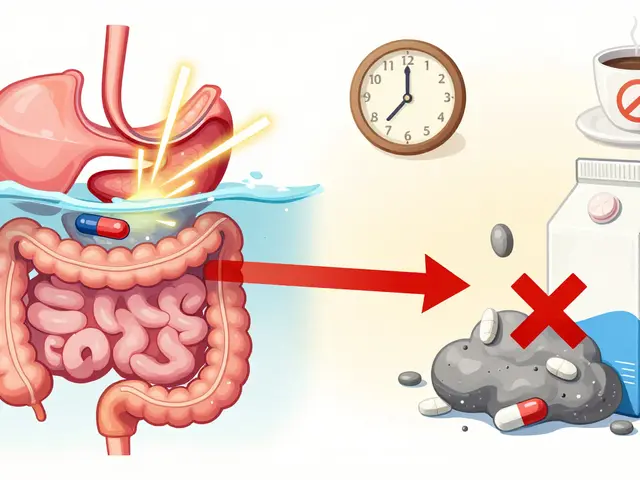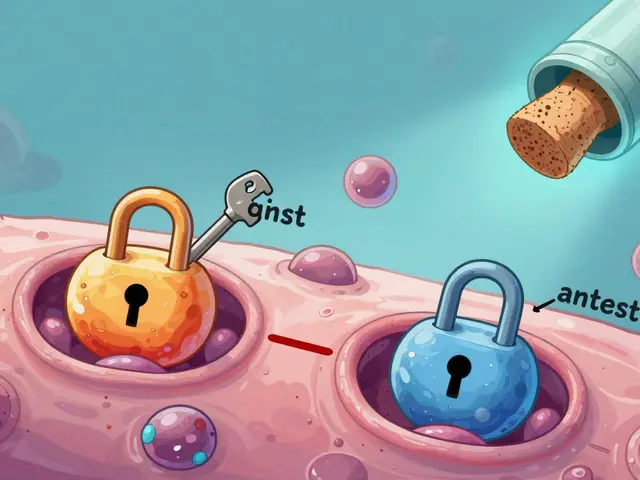Mental Health: Practical Guides on Anxiety, Trauma & Medication
Ever felt overwhelmed and not sure where to start? This Mental Health section pulls together clear, useful advice you can use today. You’ll find short guides on panic disorder and OCD links, how childhood trauma shows up as behavior problems, and simple nutrition tips for people taking clozapine.
Fast signs and what to do right now
Worried you or someone you care about needs help? Look for sudden panic attacks (racing heart, sweating, breathlessness), repeated unwanted thoughts with rituals (that’s often OCD), or major behavior changes after trauma—like aggression, trouble focusing, or withdrawing from friends. If any of these show up, try one simple step first: slow, steady breathing for two minutes and grounding—name five things you see, four you can touch, three you hear. If symptoms are frequent or getting worse, contact a mental health professional.
For parents: if a child acts out after a scary event, don’t dismiss it as “bad behavior.” Early support—talk therapy, school plans, or parenting guidance—can change how a child copes long term.
Practical tips from our posts you can use today
Panic and OCD often overlap. If panic attacks trigger rituals or avoidance, mention both to your clinician so treatment can target each part. Cognitive-behavioral techniques like exposure with response prevention (ERP) help OCD, while breathing and muscle relaxation help panic attacks. Medication can help too, so ask about options if therapy alone isn’t enough.
When trauma links to behavior disorders, specific therapies that focus on the trauma—trauma-focused CBT or family-based approaches—work better than generic behavior plans. Schools can help by adding structure, clear routines, and counseling referrals. Keep notes on changes in sleep, appetite, and social life; concrete examples help clinicians assess progress faster.
Clozapine is powerful and can affect metabolism. Simple, practical diet moves help: choose whole grains, lean protein, veggies, and fiber; cut sugary drinks and processed snacks; aim for small, regular meals to avoid overeating. Monitor weight, blood sugar, and lipid levels as your doctor recommends. Stay hydrated and aim for gentle daily movement—walking counts. Remember: never change medication or stop lab checks without talking to your prescriber.
Want next steps? Read the full posts on this page for deeper tips, checklists, and realistic coping steps. If you’re unsure which article fits your situation, start with the symptoms list above and then pick the piece that matches—panic/OCD, childhood trauma, or clozapine nutrition.
If things feel urgent—suicidal thoughts, severe self-harm, or danger to others—call local emergency services or a crisis line immediately. Mental health care works best when you get the right support early. You don’t have to do this alone.
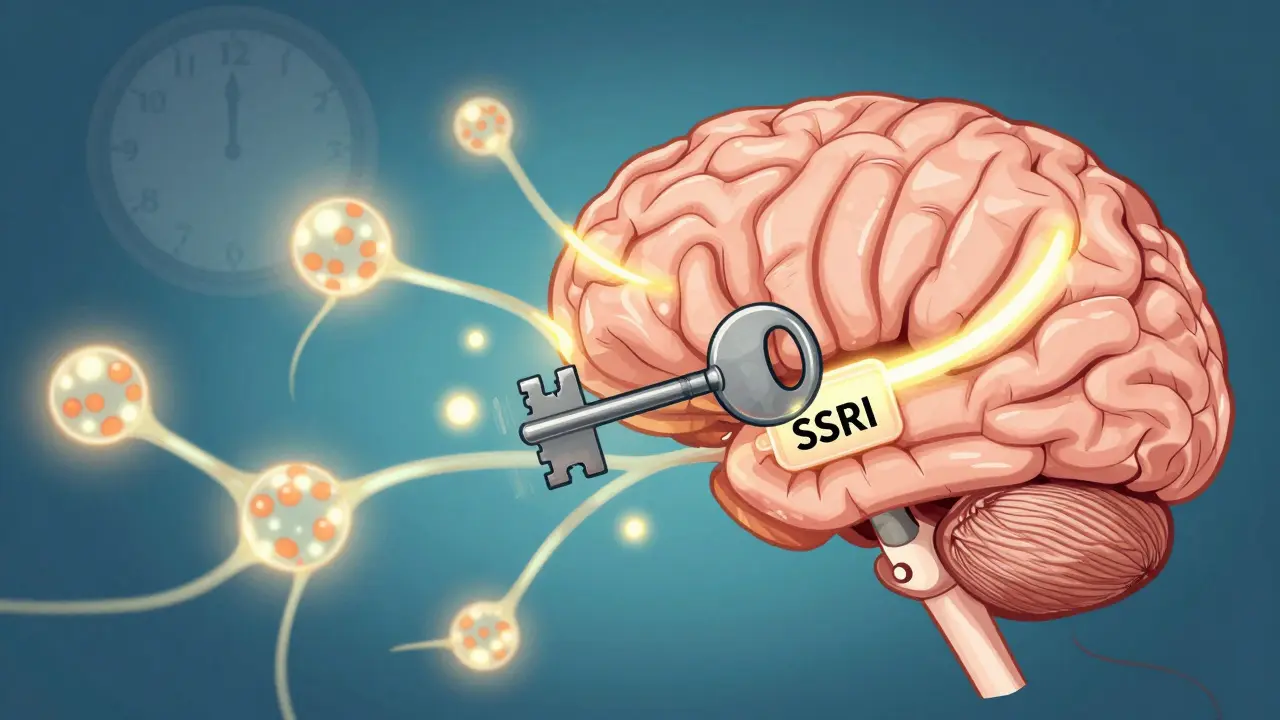
SSRI Antidepressants: How They Work and Common Side Effects
SSRIs are the most common antidepressants used today. Learn how they work in the brain, what side effects to expect, why they take weeks to work, and what to do if they don’t help.
read more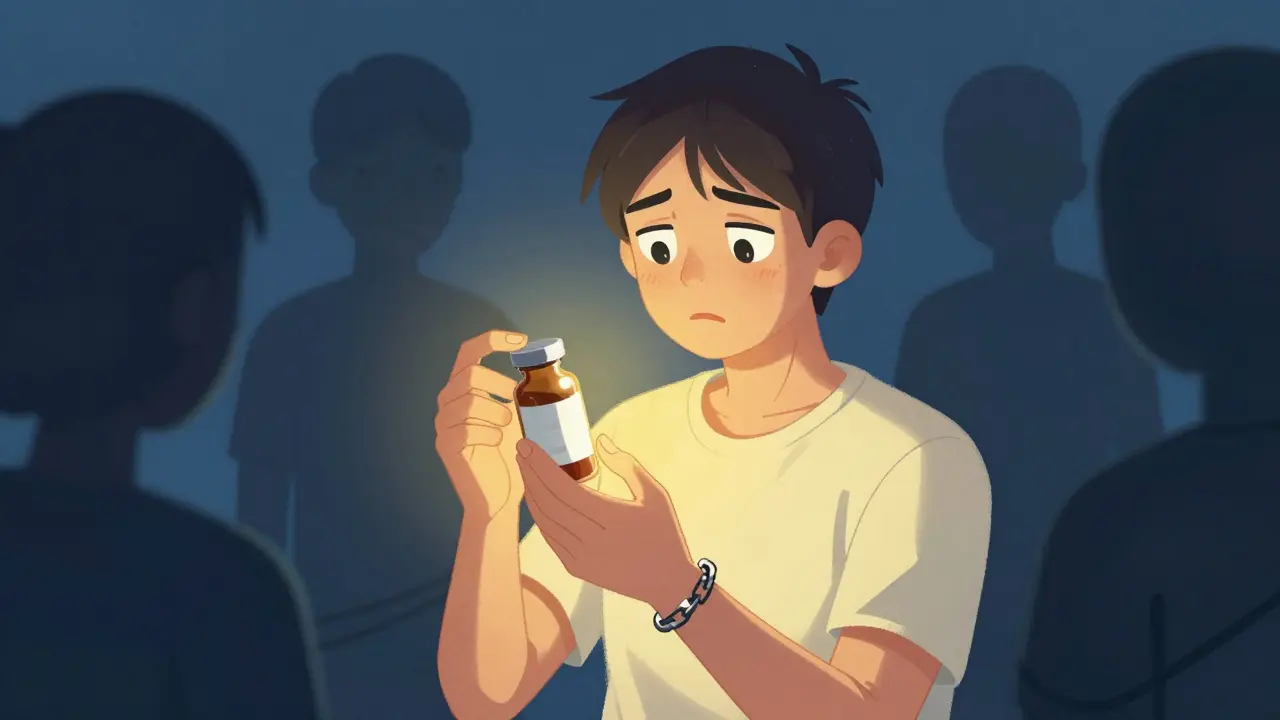
How to Address Mental Health Medication Stigma: Practical Steps for Patients and Providers
Stigma around mental health medications stops many from getting care. Learn practical steps to address it, including how to talk about meds, respond to misconceptions, and find support. Evidence-based strategies from SAMHSA and NAMI can help reduce shame and improve treatment outcomes.
read more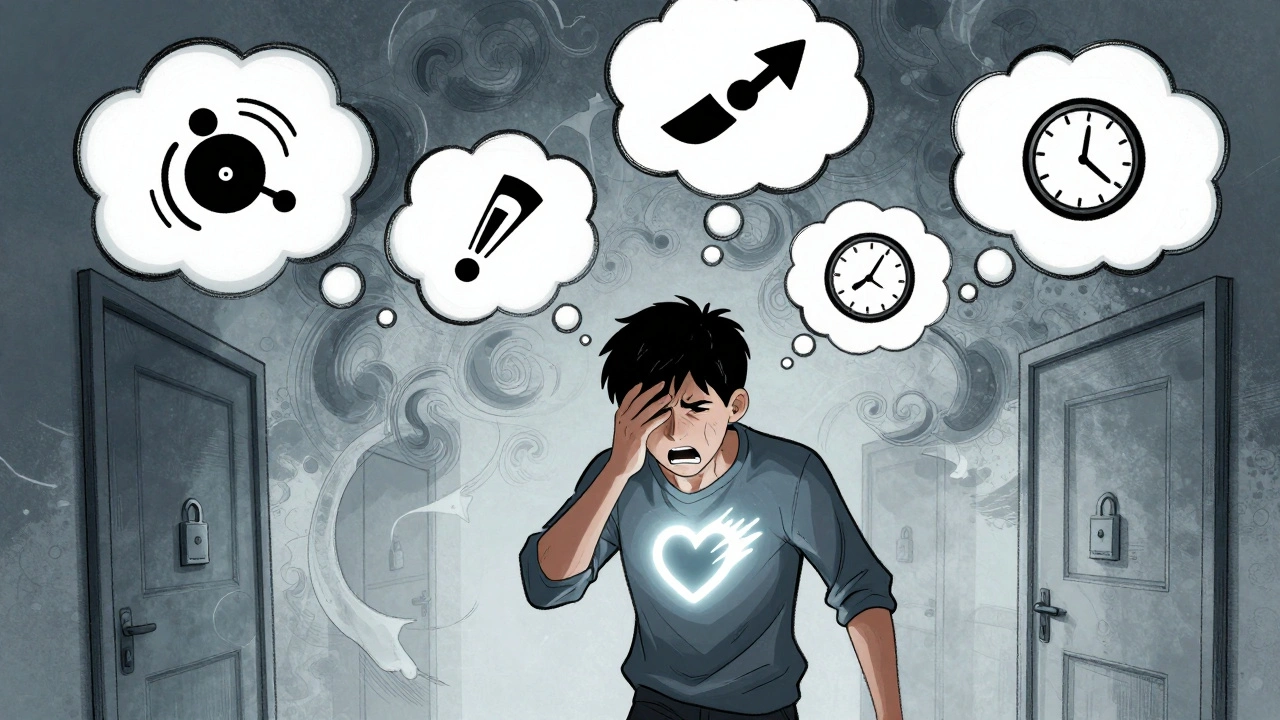
Anxiety Disorders: Types, Symptoms, and Evidence-Based Treatments
Anxiety disorders affect nearly 20% of U.S. adults and include types like GAD, panic disorder, and social anxiety. Evidence-based treatments like CBT and SSRIs offer real relief, but access and side effects remain barriers. Learn what works, what doesn't, and how to move forward.
read more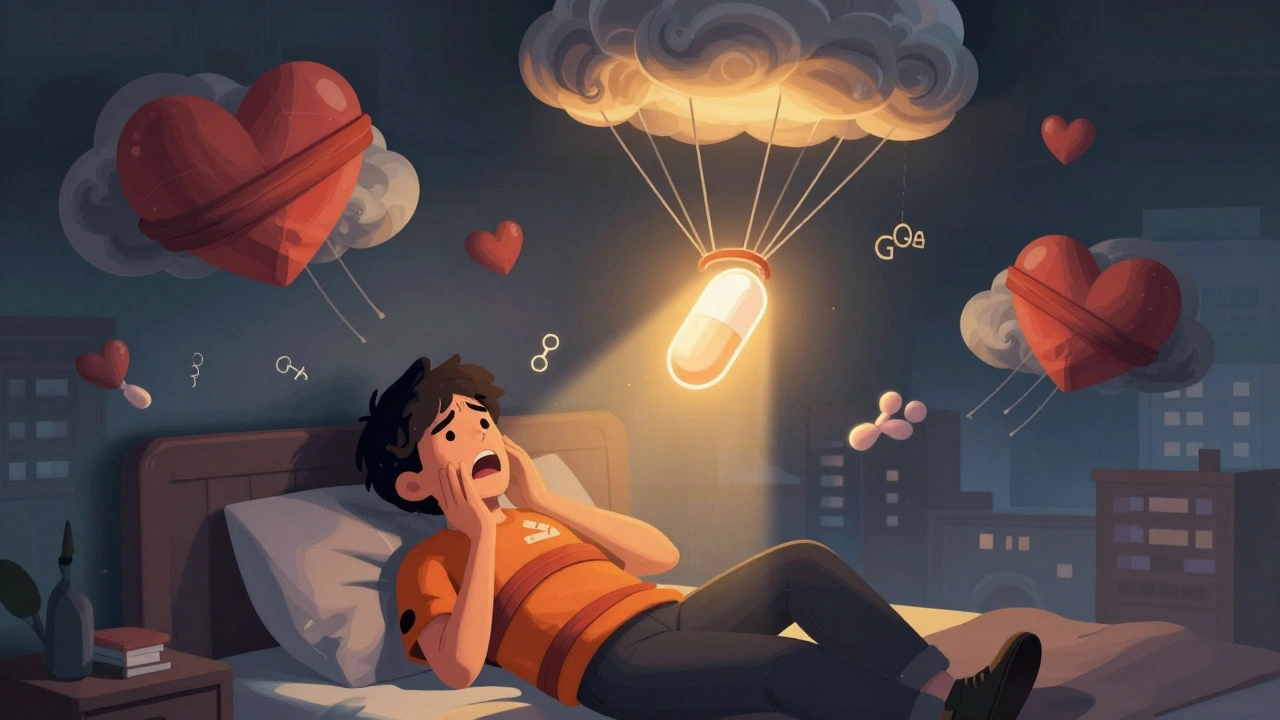
Benzodiazepines: What They Do, How They Help, and Why They Can Be Dangerous
Benzodiazepines offer fast relief for anxiety and panic but carry high risks of dependence and withdrawal. Learn how they work, who should avoid them, and safer long-term alternatives.
read more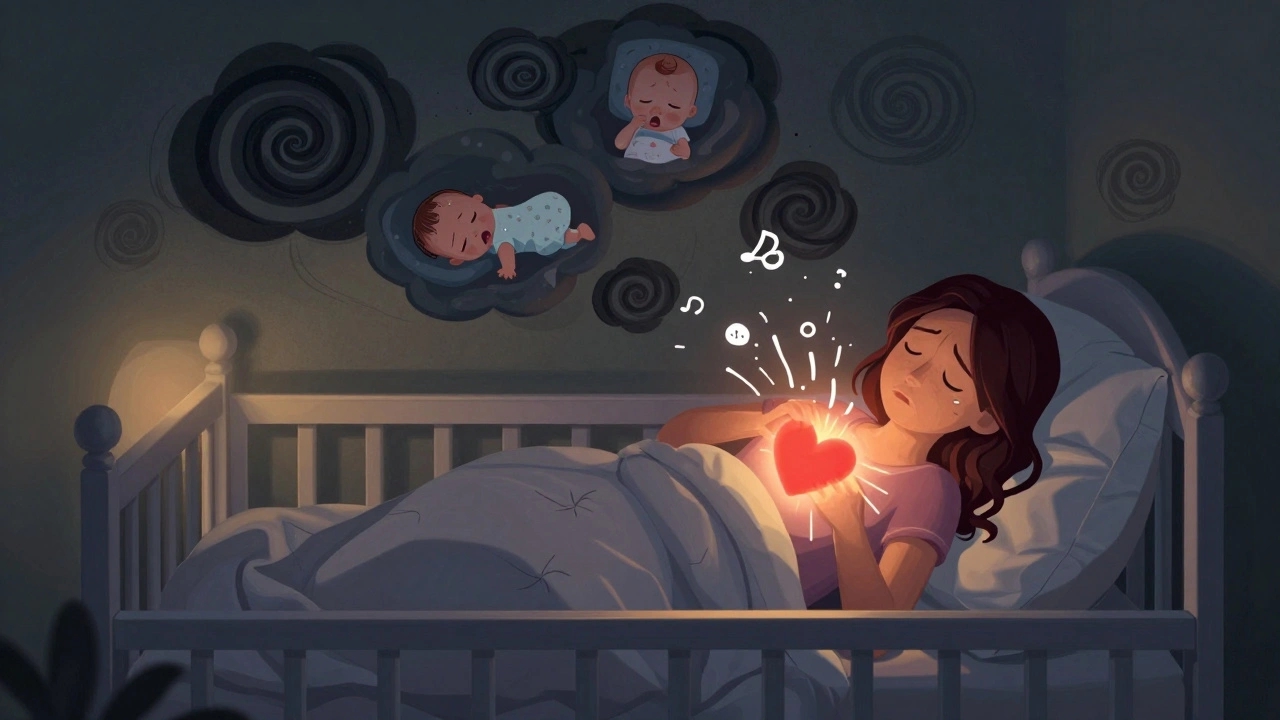
Postpartum Anxiety: Recognizing Symptoms, Screening Tools, and Effective Care Paths
Postpartum anxiety affects 1 in 5 new mothers and often goes undiagnosed. Learn the symptoms, screening tools, and evidence-based care paths-from therapy to medication-that actually work.
read more
How Poor Muscle Control Relates to ADHD: What You Need to Know
Explore how poor muscle control ties into ADHD, its brain basis, signs, assessments, and effective strategies like OT, exercise, and medication.
read more
Mindfulness & Meditation Techniques to Ease PTSD Symptoms
Learn how mindfulness and meditation can calm PTSD symptoms, with step‑by‑step practices, grounding tips, and how to combine them with therapy for lasting relief.
read more
Alopecia: Psychological Impact and Effective Coping Strategies
Explore how alopecia affects mental well‑being and learn proven coping tactics-from therapy and support groups to everyday self‑care tricks.
read more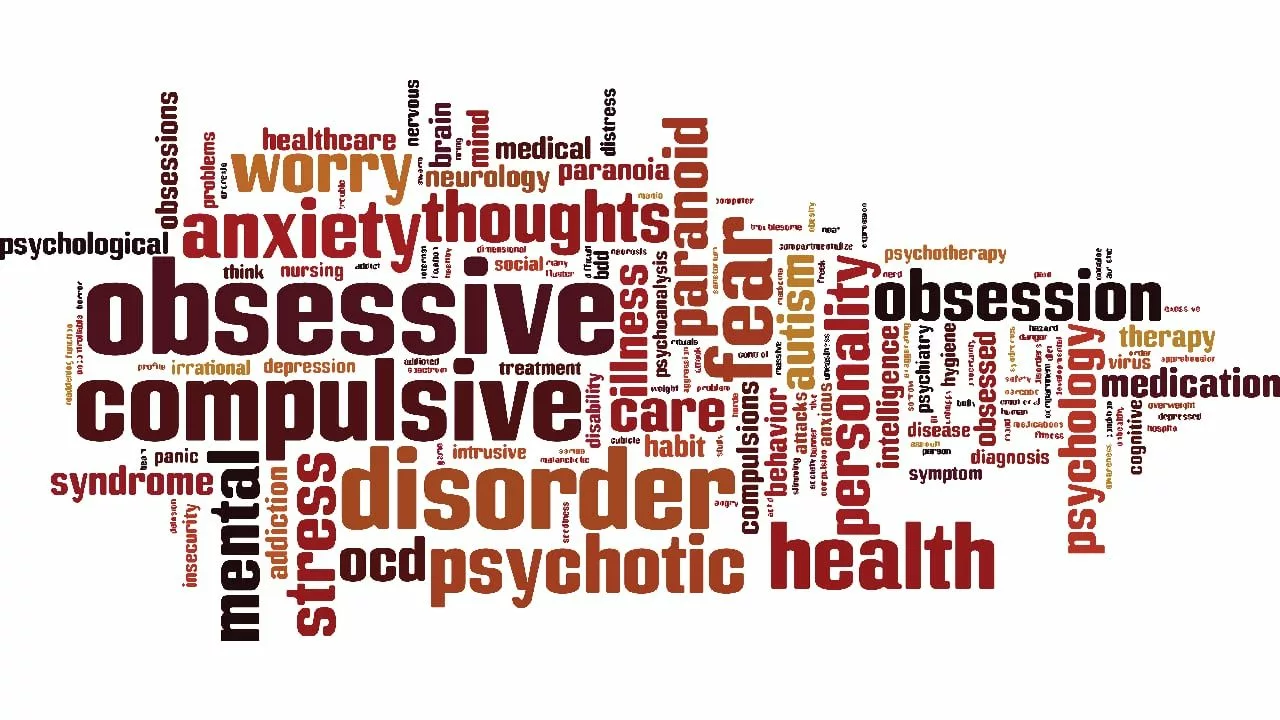
The Relationship Between Panic Disorder and Obsessive-Compulsive Disorder
In my exploration of mental health, I've found an intriguing connection between Panic Disorder and Obsessive-Compulsive Disorder (OCD). Both conditions are anxiety disorders with shared symptoms like intense fear or distress, but they manifest in different ways. Panic Disorder often involves sudden, unexpected panic attacks, while OCD is characterized by recurring, unwanted thoughts and behaviors. It's interesting to note that people with Panic Disorder may develop OCD as a coping mechanism, and vice versa. It's a complex relation, revealing the intricate nature of our mental health.
read more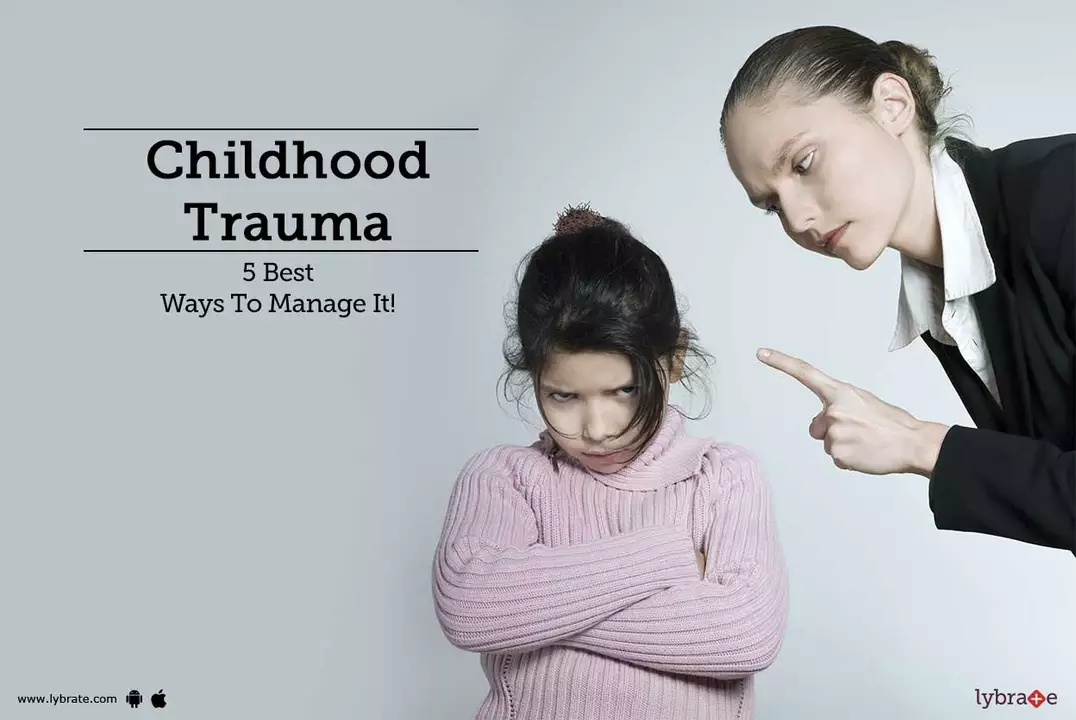
The link between childhood trauma and behavior disorders
In my latest research, I've discovered a strong link between childhood trauma and behavior disorders. It seems that children who experience trauma at a young age are more likely to develop issues like ADHD, oppositional defiant disorder, and conduct disorder. This connection highlights the importance of early intervention and support for children who've undergone traumatic experiences. As a society, we need to prioritize mental health and address childhood trauma to help prevent these behavior disorders from developing. I believe that by understanding this connection, we can work towards creating a healthier and happier future for our children.
read more


